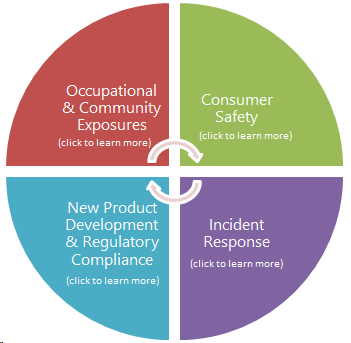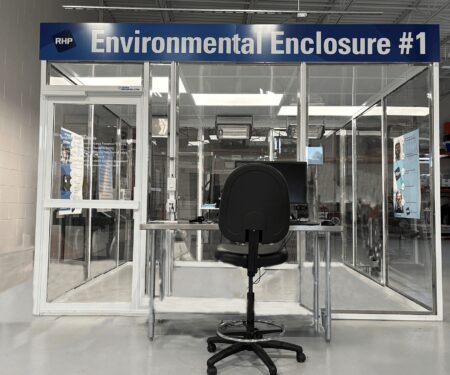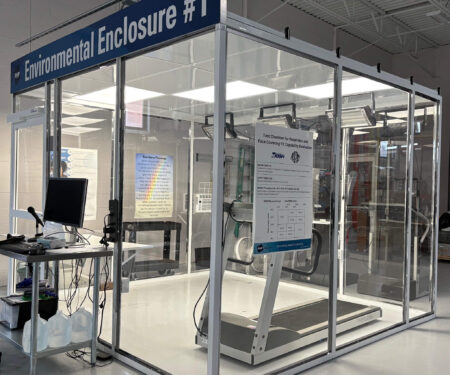
RHP scientists are well versed in exposure modeling, laboratory and field-based quantification of exposures, and toxicology and use a combination of these expertise to assess potential risks to human health and the environment. RHP collaborates with chemical manufacturers, product manufacturers, consumer good, pharmaceutical, and legal entities to help gain a better understanding of risk profiles of chemicals, identify safer and sustainable alternatives, bolster decision making via use of robust scientific methods, and formulate economically and technically feasible risk management measures. RHP scientists rely on scientifically accepted and recognized approaches in toxicology, exposure modeling and quantification, dose response, benchmark dose modeling, and physiologically based pharmacokinetic modeling to address questions regarding risk profiles of chemicals, identifying safer & sustainable alternatives, enhancing the understanding of risk that leads to better decision making, and implementing risk management measures to effectively and efficiently reduce exposures for workers and consumers.


RHP’s state-of-the-art Exposure Sciences Laboratory (ESL) provides clients with a better understanding of potential exposures and risks to human health and the environment by utilizing industry standard and regulatory accepted methods. ESL offers clients exclusive opportunities to develop scientifically accepted and recognized approaches in exposure sciences and toxicology that will provide them with an understanding of exposure and risk based on sound, defensible, science. RHP professionals have extensive experience in resolving uncertainty and improving decision-making through development of experimentally derived data, which is relevant, reliable, and reproducible. By engaging stakeholders during the problem formulation stage, RHP ensures that assessments are tailored to meet the intended purpose.
